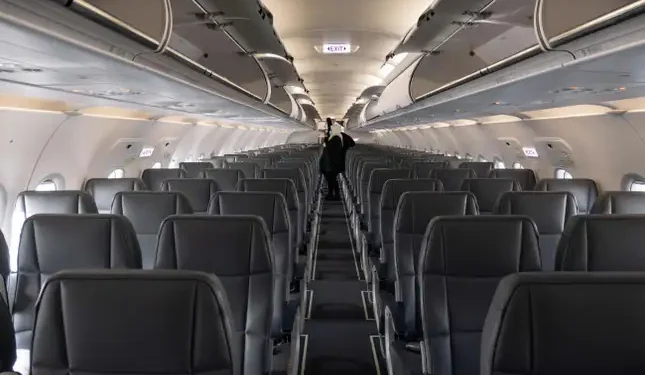Record-breaking air travel figures are not providing much relief to airlines, as profits are anticipated to plummet this year. The contentious “seat fees,” which once served as a critical financial support for carriers, are now facing scrutiny due to a new Senate investigation into allegations of misleading pricing practices. This backlash is placing airline executives under pressure and compelling the industry to reassess its tactics.
Millions are traveling this Thanksgiving, yet airlines are poised for challenges
The TSA reports that 18.3 million travelers will fill U.S. airports this Thanksgiving week—a 6% increase compared to last year and indicative of a continued travel boom in 2024. With air travel hitting unprecedented heights, numbers are now exceeding pre-pandemic figures. This development couldn’t have arrived at a more opportune moment for airlines that previously worried about their recovery. Still, despite this encouraging trend, some carriers are finding it difficult to remain viable. Budget airlines like Spirit are facing financial distress and risk going under as their business models become outdated in today’s landscape.
Characterized as “junk fees” by the Biden Administration, these charges have emerged as a vital income source for airlines. For years, budget carriers have compensated for their low ticket prices by imposing additional costs—frequently for services that passengers were unaware would incur extra charges. Fees for checked baggage, seat reservations, and check-in have become the norm in the airline sector.
Some airlines, mainly in Europe, have even rolled out “green fees”—costs associated with the use of sustainable aviation fuel (SAF), an eco-friendly option made from cooking oils. Airlines are promoting these charges as environmentally conscious moves intended to attract ecologically minded travelers and advocate for a sustainable future. Yet, with rising “green fatigue,” persuading travelers to subscribe to these charges could be a hard sell. Studies indicate that consumers are growing weary of footing the bill for sustainability initiatives, according to Air Guide.
Senate report uncovers airlines’ rampant ancillary charges
Following a year-long inquiry and widespread discussion regarding these fees, the Senate Permanent Subcommittee on Investigations has published an extensive 55-page report that examines how U.S. airlines are allegedly taking advantage of passengers through excessive ancillary costs.
The report asserts that these fees not only diminish the travel experience for customers but may also be linked to tax avoidance and illicit cost-cutting objectives.
“Our investigation has revealed new insights about airlines taking advantage of travelers with exorbitant junk fees,” stated Sen. Richard Blumenthal, chair of the subcommittee. “We regret that consumers will be burdened with millions in fees that are unrelated to actual costs but solely serve to boost airlines’ profits.”
The five airlines under scrutiny—American, Delta, United, Frontier, and Spirit—collected a shocking $12.4 billion from seating fees between 2018 and 2023. The report indicates that these airlines are earning more from seat fees than ever before, representing a significant revenue source that was nearly nonexistent in most carriers only a few years ago.
Spirit and Frontier draw criticism over $26 million baggage fee scheme
Budget airlines Spirit and Frontier faced intense backlash in the report, which claims they compensated gate agents $26 million between 2022 and 2023 to penalize travelers regarding baggage rules, often leaving flyers with no option but to pay fees or forfeit their flights. Both airlines assert that their pricing structures are straightforward and that customers are treated equitably.
This practice, which occurs globally, is frequently the final straw for passengers who feel compelled to pay extra fees after having already purchased their tickets and arriving punctually at the airport. In Spain, the Ministry of Consumer Rights recently announced a €179 million ($186 million) fine against five low-cost airlines for “abusive practices” concerning additional cabin luggage fees. Ryanair received the brunt of the penalty, with a €107.78 million fine, although they have already dismissed the accusations as “groundless.” The battle over this fee chaos has taken a global turn.
Avoid rushing the booking process—remain aware of hidden charges
The report concludes with three main recommendations: closing tax loopholes on ancillary fees and urging Congress to mandate greater transparency from airlines regarding their charges. It also encourages the Department of Transportation to scrutinize and penalize dubious practices, such as Spirit and Frontier’s incentive systems that reward gate agents for flagging travelers regarding baggage policies.
While increased transparency and accountability in airline pricing represents positive progress for passengers, it is essential to remain wary of potential price increases as airlines aim to recover losses. The move towards more inclusive pricing could minimize unexpected fees, yet vigilance is still key. Always examine the fine print, take your time while booking, and avoid making hasty decisions, especially when seeking that ‘best deal.’ You might inadvertently agree to costs that caught you off guard.


